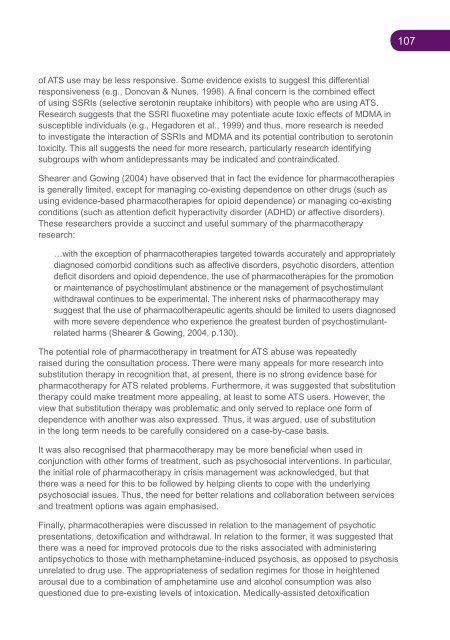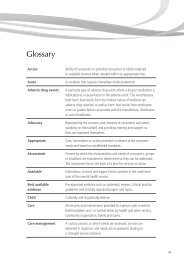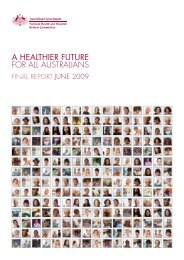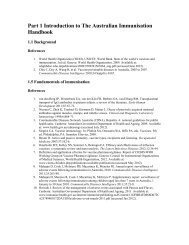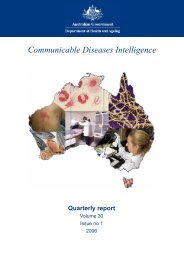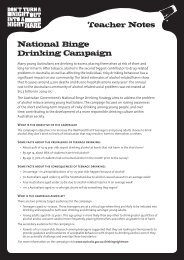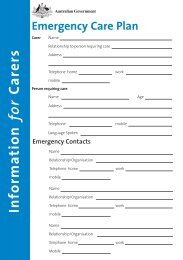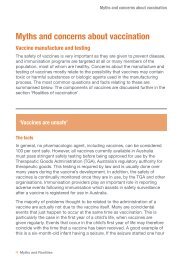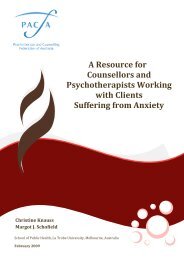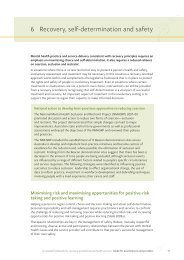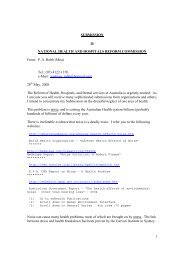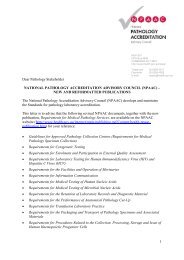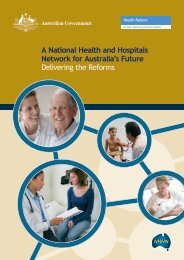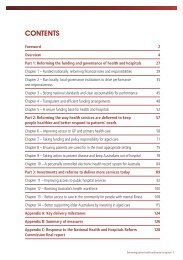National Amphetamine-Type Stimulant Strategy Background Paper
National Amphetamine-Type Stimulant Strategy Background Paper
National Amphetamine-Type Stimulant Strategy Background Paper
You also want an ePaper? Increase the reach of your titles
YUMPU automatically turns print PDFs into web optimized ePapers that Google loves.
107<br />
of ATS use may be less responsive. Some evidence exists to suggest this differential<br />
responsiveness (e.g., Donovan & Nunes, 1998). A final concern is the combined effect<br />
of using SSRIs (selective serotonin reuptake inhibitors) with people who are using ATS.<br />
Research suggests that the SSRI fluoxetine may potentiate acute toxic effects of MDMA in<br />
susceptible individuals (e.g., Hegadoren et al., 1999) and thus, more research is needed<br />
to investigate the interaction of SSRIs and MDMA and its potential contribution to serotonin<br />
toxicity. This all suggests the need for more research, particularly research identifying<br />
subgroups with whom antidepressants may be indicated and contraindicated.<br />
Shearer and Gowing (2004) have observed that in fact the evidence for pharmacotherapies<br />
is generally limited, except for managing co-existing dependence on other drugs (such as<br />
using evidence-based pharmacotherapies for opioid dependence) or managing co-existing<br />
conditions (such as attention deficit hyperactivity disorder (ADHD) or affective disorders).<br />
These researchers provide a succinct and useful summary of the pharmacotherapy<br />
research:<br />
…with the exception of pharmacotherapies targeted towards accurately and appropriately<br />
diagnosed comorbid conditions such as affective disorders, psychotic disorders, attention<br />
deficit disorders and opioid dependence, the use of pharmacotherapies for the promotion<br />
or maintenance of psychostimulant abstinence or the management of psychostimulant<br />
withdrawal continues to be experimental. The inherent risks of pharmacotherapy may<br />
suggest that the use of pharmacotherapeutic agents should be limited to users diagnosed<br />
with more severe dependence who experience the greatest burden of psychostimulantrelated<br />
harms (Shearer & Gowing, 2004, p.130).<br />
The potential role of pharmacotherapy in treatment for ATS abuse was repeatedly<br />
raised during the consultation process. There were many appeals for more research into<br />
substitution therapy in recognition that, at present, there is no strong evidence base for<br />
pharmacotherapy for ATS related problems. Furthermore, it was suggested that substitution<br />
therapy could make treatment more appealing, at least to some ATS users. However, the<br />
view that substitution therapy was problematic and only served to replace one form of<br />
dependence with another was also expressed. Thus, it was argued, use of substitution<br />
in the long term needs to be carefully considered on a case-by-case basis.<br />
It was also recognised that pharmacotherapy may be more beneficial when used in<br />
conjunction with other forms of treatment, such as psychosocial interventions. In particular,<br />
the initial role of pharmacotherapy in crisis management was acknowledged, but that<br />
there was a need for this to be followed by helping clients to cope with the underlying<br />
psychosocial issues. Thus, the need for better relations and collaboration between services<br />
and treatment options was again emphasised.<br />
Finally, pharmacotherapies were discussed in relation to the management of psychotic<br />
presentations, detoxification and withdrawal. In relation to the former, it was suggested that<br />
there was a need for improved protocols due to the risks associated with administering<br />
antipsychotics to those with methamphetamine-induced psychosis, as opposed to psychosis<br />
unrelated to drug use. The appropriateness of sedation regimes for those in heightened<br />
arousal due to a combination of amphetamine use and alcohol consumption was also<br />
questioned due to pre-existing levels of intoxication. Medically-assisted detoxification


